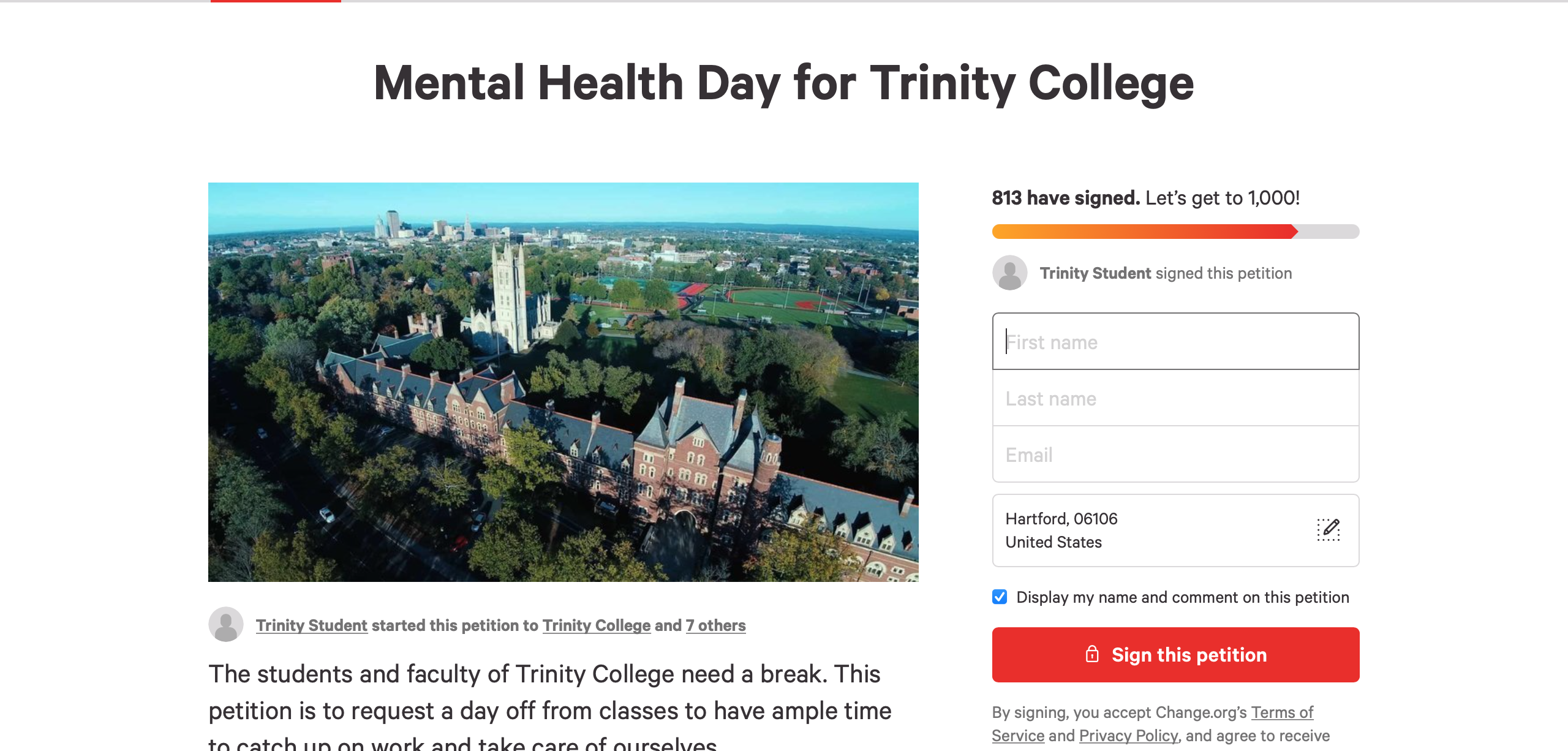Bailey McKeon ’22
Features Editor
As we embark upon the final three weeks of classes of the spring semester, many students have taken the time to reflect upon the semester so far. Much of this reflection has not been prompted by the Tripod but instead has been a reality that Trinity students have been forced to confront throughout the progression of the semester as they cope with and understand their stress, exhaustion, and physical and mental health. As a result of this, Trinity students have started a petition requesting a day off, a mental health day, to “allow students and professors to either catch up on work or take a day of rest without fear of getting behind.”
Trinity College designed a condensed semester as a part of the special calendar for the 2020-2021 school year as a reaction to the COVID-19 pandemic. As a part of this design, students and professors are pushed to fit an entire semester’s worth of material in a shorter period of time. Additionally, Trinity planned for its students to complete these intensive weeks of study without a break: no Trinity Days and no spring break. While the College’s calendar is understandable in that it attempts to mitigate the opportunity for students to travel off campus and risk exposure to the coronavirus, the students, faculty, and staff are suffering as a result. This condensed schedule has led to widespread depletion of energy, immense stress, mental health struggles, and a cyclical feeling of “just getting by.”
“You can ask any student on campus how they’re doing and they’ll tell you they’re exhausted,” one senior commented. A first year noted that “this year has certainly taken a toll on our well-being.” Another student reported an instance where their professor conducted a survey to check in on the wellbeing of the students in their class. Out of the twenty-five students in the class, not one reported that they were mentally “okay.” The professor also indicated a level of distress and exhaustion and voiced that the creation of the survey was a result of feeling burned out themselves.
Due to the structure of the semester, specifically the lack of breaks, many students believe that the “school is sending the message that mental health is unimportant,” a junior expressed. “I understand administrators are wary that COVID cases may increase if we have a break, but I think there needs to be some sort of compromise that results in giving students break time while still staying safe because at the end of the day both COVID and mental health can be deadly,” they added.
Many students are expressing that this break is vital to their performance in the remainder of the semester and for finals. First-years, who have been attempting to adjust to college during a year when college life is quite unusual and intense, indicated that “giving us a day or two off would allow us to press the reset button and be ready for the last few weeks of classes.” A senior voiced a similar sentiment: “Just one day would give us the chance to reset and catch up on health and personal needs, putting us in a better position to finish out this semester strong.”
The petition also notes that other NESCAC schools have been able to give their students a day off, leading Bantams to hope that their institution can do the same. This comparison has fostered a feeling of frustration in the student body as their needs are both not being met and do not feel heard. A sophomore believes that “If UMASS Amherst can give their nearly 30,000 undergraduate students days off periodically throughout the fall and spring, Trinity can certainly give their 2,000 students one day off.”







+ There are no comments
Add yours